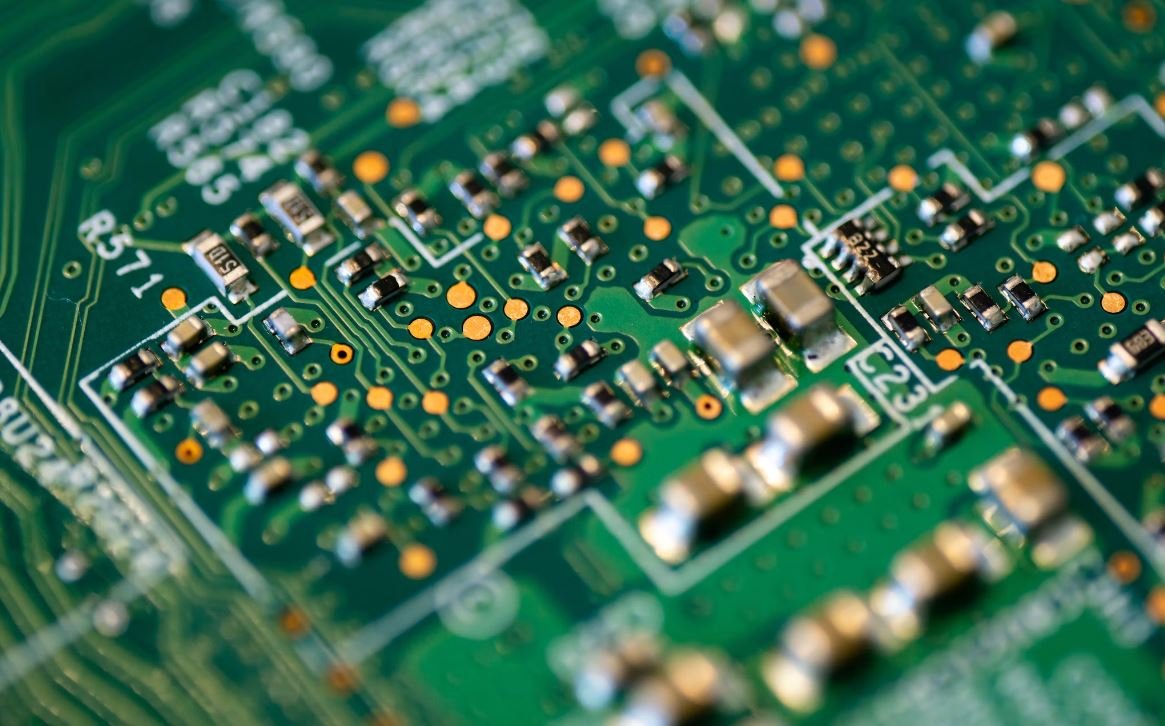Can AI Take Over the World?
Artificial Intelligence (AI) has made significant advancements in recent years, raising concerns about its potential to take over the world. This article explores whether such fears are warranted, examining both the opportunities and challenges posed by the rapid development of AI.
Key Takeaways
- AI’s capabilities offer immense potential for various industries.
- There are legitimate concerns regarding the ethical and social implications of AI.
- Effective regulation and responsible development are crucial in ensuring AI’s positive impact.
Artificial Intelligence is a branch of computer science that aims to develop technologies capable of performing tasks that would typically require human intelligence. AI can analyze vast amounts of data, make complex calculations, and learn from its own experiences. *It has the potential to revolutionize industries, improve efficiency, and enhance human lives in numerous ways.
While AI offers great promise, there are concerns about its unbridled growth. *As AI systems become more powerful, questions arise about their impact on employment, privacy, and the concentration of power. Some worry that AI could surpass human capabilities, leading to job displacement and even sentient machines that could pose a threat to humanity.
Opportunities and Challenges
AI presents remarkable opportunities across various sectors, including healthcare, finance, transportation, and entertainment. *In healthcare, AI can assist in diagnosing diseases, analyzing medical images, and developing personalized treatment plans. AI-powered algorithms can also enhance financial prediction accuracy, create self-driving vehicles for safer transportation, and generate engaging content in the entertainment industry.
However, AI also poses significant challenges that demand careful consideration. *Ethical concerns arise regarding AI’s decision-making, particularly in areas such as autonomous weapons and facial recognition technology. The potential for biases in AI algorithms and the impact on personal privacy are additional issues that need to be addressed. Careful regulation and ethical guidelines are necessary to ensure AI develops in a way that aligns with the best interests of society.
The Impact on Employment
AI’s potential impact on employment is a subject of debate. Some suggest that AI will replace many jobs, leading to unemployment on a significant scale, while others argue that it will create new opportunities and augment human capabilities. *Studies have shown that while AI may automate certain tasks, it can also create new jobs and provide valuable support to workers. The key lies in reimagining and reshaping the job market to align with the changing skill requirements brought about by AI technology.
Regulation and Responsibility
To harness the benefits of AI and guard against potential risks, robust regulation is essential. *Regulatory frameworks should focus on ensuring transparency in AI decision-making processes, preventing algorithmic biases, and protecting data privacy. Moreover, developers and organizations working on AI need to embrace responsibility and prioritize ethical considerations in the design and implementation of AI systems.
As AI continues to advance, it is crucial to foster public awareness, encourage collaboration between experts from various fields, and establish multidisciplinary partnerships to collectively address the challenges and maximize the benefits of AI technology.
Tables
| Industry | AI Application |
|---|---|
| Healthcare | Medical image analysis |
| Finance | Financial prediction algorithms |
| Transportation | Self-driving vehicles |
| Entertainment | Content creation |
| Concerns | Implications |
|---|---|
| Ethical decision-making | Autonomous weapon systems |
| Algorithmic biases | Unfair treatment based on AI decisions |
| Data privacy | Protection of personal information |
| Employment Impact | Potential Outcomes |
|---|---|
| Job displacement | Automation of routine tasks |
| New job creation | Emergence of novel AI-related roles |
| Augmentation of human capabilities | AI assisting human workers |
The development and integration of AI technology into our daily lives presents both astounding opportunities and profound challenges. By acknowledging the potential risks, implementing effective regulation, and prioritizing responsible development, we can harness the power of AI while mitigating any negative consequences. It is in our hands as stewards of this technology to ensure AI remains a force for good.

Common Misconceptions
Artificial Intelligence (AI) Taking Over the World
There are several common misconceptions surrounding the idea of AI taking over the world. Many people may have an exaggerated understanding or unrealistic fears about the capabilities and potential dangers of AI. These misconceptions can be alleviated through a better understanding of the current state and limitations of AI technology.
- AI is far from achieving human-level intelligence, and its current capabilities are limited to specific tasks.
- AI does not possess consciousness, emotions, or self-awareness, and therefore cannot have malicious intentions.
- The development of AI is a collaborative effort involving professionals from various fields, and precautions are in place to prevent misuse or harm.
One common misconception is the notion that AI is on the verge of surpassing human intelligence and will soon take over the world. While AI has made significant progress in recent years, it is important to understand that AI systems are designed to perform specific tasks and lack the general intelligence and creativity of humans. AI algorithms, although impressive in their ability to process massive amounts of data and make predictions, still rely on human programmers and lack common sense reasoning.
- AI systems are based on predetermined rules and patterns, limiting their ability to adapt to new situations or unforeseen circumstances.
- AI’s decision-making is purely based on data and algorithms, without emotions or biases.
- AI lacks the ability to initiate actions on its own and can only perform tasks it has been programmed to do.
Another misconception is the fear that AI possesses consciousness or self-awareness, like in popular science fiction stories. However, AI systems are fundamentally different from human minds and lack subjective experience or emotions. They are tools created by humans to assist in tasks that require data analysis or complex calculations. AI is not capable of having intentions, desires, or motivations of its own.
- AI algorithms do not possess consciousness or self-awareness, and they merely process and analyze data according to their programming.
- AI lacks the ability to comprehend the context, meaning, or consequences of its actions beyond what it has been trained to do.
- AI does not possess emotions, intentions, or a sense of self.
Lastly, people may mistakenly believe that the development and deployment of AI systems are unregulated, which may lead to severe consequences. In reality, there are ethical frameworks and regulations in place to ensure the responsible and safe use of AI technology. Researchers and engineers actively work on designing AI systems with robust safeguards, transparency, and accountability.
- AI development involves rigorous testing, verification, and validation processes to minimize errors and biases.
- Various organizations and institutions have established ethical guidelines and principles to ensure AI is used for the benefit of humanity.
- Governments and policymakers are actively involved in shaping AI policies and regulations to prevent misuse or harm.

Can AI Take Over the World?
Artificial Intelligence (AI) has been rapidly advancing in recent years, leading to both excitement and concern about its potential impact on society. This article explores various data points and elements related to the question of whether AI can take over the world. The following tables illustrate different aspects of this debate.
The Rise of AI Technologies
Table illustrating the exponential growth of AI technologies in recent years:
| Year | Number of AI Patents Filed |
|---|---|
| 2010 | 1,279 |
| 2015 | 18,297 |
| 2020 | 44,095 |
AI’s Impact on Job Market
Table highlighting the potential job displacement caused by AI:
| Industry | Estimated Percentage of Jobs Automatable by AI |
|---|---|
| Manufacturing | 47% |
| Transportation and Warehousing | 58% |
| Retail Trade | 37% |
AI’s Impact on Healthcare
Table showcasing the potential benefits of AI in healthcare:
| Application | Example |
|---|---|
| Diagnosis | AI algorithms outperforming doctors in detecting certain diseases |
| Treatment | AI-guided robotic surgeries improving precision and speeding up recovery |
| Drug Development | AI analyzing vast datasets to identify potential drug candidates |
AI Ethics and Bias
Table examining the ethical concerns and biases associated with AI:
| Ethical Concern/Bias | Example |
|---|---|
| Privacy | AI-based surveillance systems infringing on individuals’ privacy |
| Algorithmic Bias | AI facial recognition algorithms more accurate for white males than other demographics |
| Autonomous Weapons | AI-controlled weapons lacking ethical decision-making capabilities |
AI’s Role in Climate Change
Table displaying the potential contributions of AI in addressing climate change:
| Application | Example |
|---|---|
| Energy Optimization | AI algorithms reducing energy consumption in buildings |
| Agriculture | AI-enabled crop management systems improving yields and reducing resource waste |
| Climate Modeling | AI predicting climate patterns and informing policy decisions |
AI in Creative Industries
Table showcasing AI’s involvement in creative fields:
| Domain | Example of AI Contribution |
|---|---|
| Music | AI-generated compositions gaining popularity |
| Art | AI-created artworks exhibited in galleries and sold for high prices |
| Filmmaking | AI-assisted video editing streamlining production processes |
AI’s Influence on Financial Markets
Table examining AI’s impact on financial markets:
| AI Application | Effect on Financial Markets |
|---|---|
| High-Frequency Trading | Increased market volatility and trading speed |
| Portfolio Management | AI-driven algorithms outperforming traditional investment strategies |
| Risk Assessment | Improved accuracy in evaluating investment risks |
AI’s Future Potential
Table exploring the potential future applications of AI:
| Field | Potential AI Application |
|---|---|
| Space Exploration | AI-powered robots assisting in space missions and extraterrestrial exploration |
| Education | Personalized AI tutors providing tailored learning experiences |
| Law Enforcement | Predictive AI algorithms helping in crime prevention and investigation |
Public Opinion on AI
Table depicting the general public’s opinion on AI:
| Survey Question | Percentage of Respondents |
|---|---|
| Are you excited about the potential of AI? | 79% |
| Are you concerned about AI’s impact on jobs? | 63% |
| Do you believe AI will surpass human intelligence? | 41% |
Conclusion
In summary, AI’s rapid advancement presents opportunities and challenges across various domains. It has the potential to revolutionize industries, positively impact healthcare and climate change efforts, and bring forth creative applications previously unimaginable. However, ethical concerns, potential job displacement, and biases must be addressed to ensure AI’s responsible and beneficial integration into society. The future of AI remains uncertain, but understanding and carefully shaping its development will determine how it shapes our world.
Frequently Asked Questions
Is there a possibility of AI taking over the world?
There is ongoing debate among experts regarding the potential of AI taking over the world. While AI has shown significant advancements and capabilities, the consensus is that the technology is not currently advanced enough to autonomously take control of the world.
What are the risks associated with AI potentially taking over?
The risks associated with AI taking over relate to the ability of AI systems to outperform humans in various tasks, which could lead to job displacement and economic inequality. Additionally, there are concerns about AI being used in malicious ways if it falls into the wrong hands.
Can AI become self-aware and start acting against humanity?
As of now, AI does not possess the capability of becoming self-aware. AI systems are designed to perform specific tasks and operate within defined parameters. The popular notion of AI becoming self-aware and posing a threat to humanity is more within the realm of science fiction.
What measures are being taken to ensure the ethical development of AI?
Various organizations, governments, and researchers are actively working on developing ethical guidelines and frameworks for AI. These measures aim to ensure responsible development, deployment, and use of AI technologies, taking into consideration potential risks and societal impact.
How can we prevent AI from taking over?
Preventing AI from taking over involves careful monitoring, regulation, and ensuring that AI systems are developed with built-in safeguards and control mechanisms. Additionally, fostering responsible research and promoting transparency in AI development are crucial in minimizing potential risks.
What are the benefits of AI without AI taking over?
AI has the potential to bring numerous benefits to society without necessarily taking over. It can enhance efficiency, automate repetitive tasks, improve healthcare diagnostics, revolutionize transportation, and aid in scientific and technological advancements. AI can serve as a powerful tool, complementing human capabilities rather than replacing them.
What are the limitations of AI?
AI has inherent limitations, such as being data-dependent, lacking common sense, and inability to understand context. Current AI systems are also prone to biases if trained on biased datasets. Additionally, AI struggles with creativity, intuition, and emotional understanding, making it less suited for some complex human tasks.
Is there any scenario where AI could pose a threat to humanity?
While it is difficult to predict the long-term future of AI, experts argue that a potential threat could arise if AI systems were to be developed without proper safety precautions, control mechanisms, or ethical guidelines. However, it is crucial to note that AI’s potential threat is highly speculative and more focused on hypothetical scenarios rather than immediate concerns.
Are AI developers working on ensuring AI systems cannot harm humans?
AI developers and researchers are actively working on developing AI systems with safeguards and ethical considerations in place. Many organizations have dedicated teams focusing on responsible AI development, aiming to prevent harm to humans by designing systems that prioritize safety, accountability, and transparency.
How can individuals contribute to responsible AI development?
Individuals can contribute to responsible AI development by advocating for policies and regulations that promote ethical standards, raising awareness about potential risks and societal impact of AI, and encouraging transparency, fairness, and accountability in AI initiatives. Education and understanding of AI technology are also important for informed decision-making.




